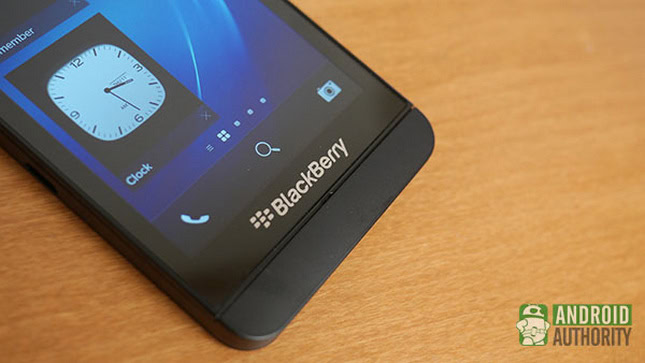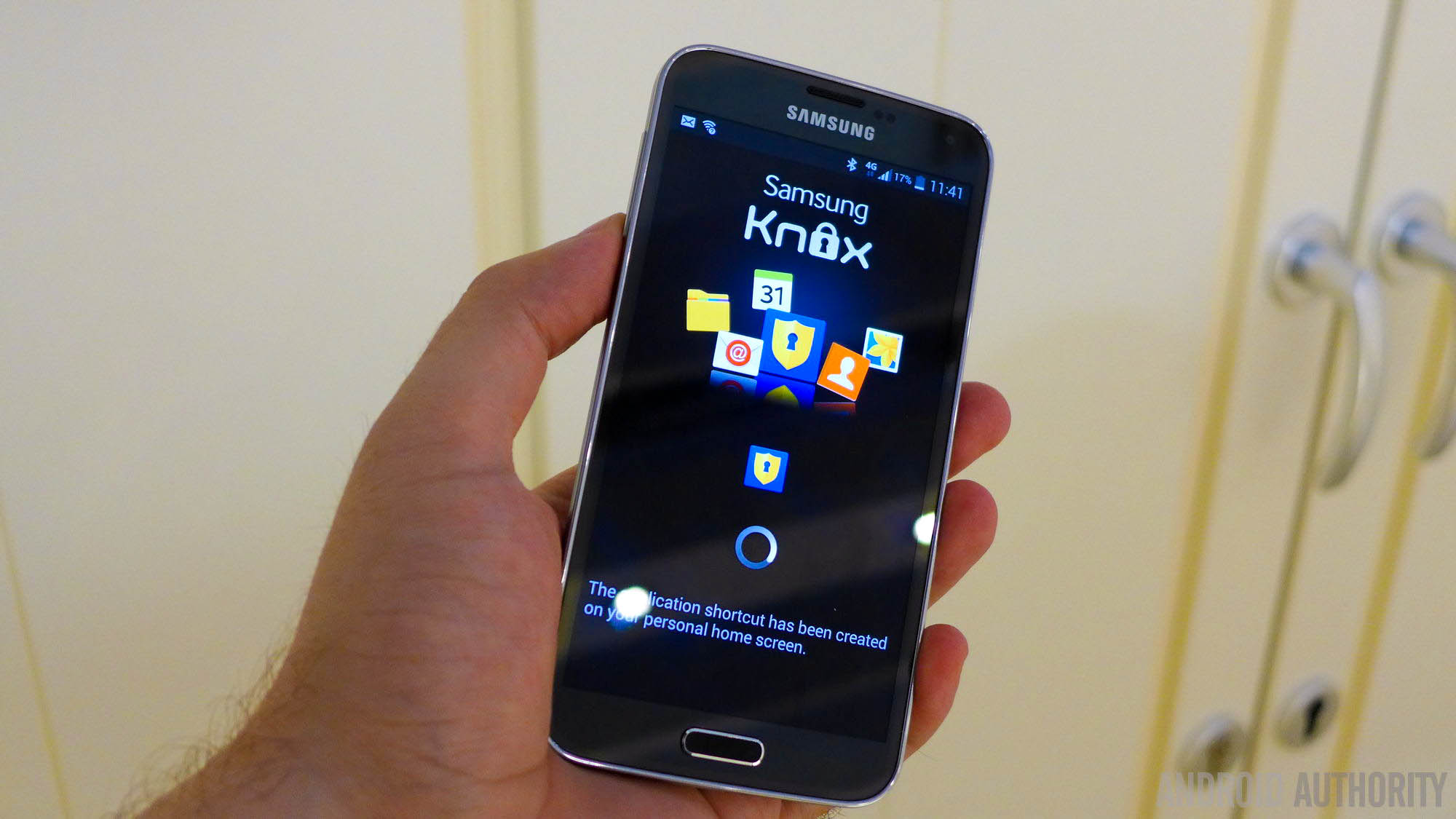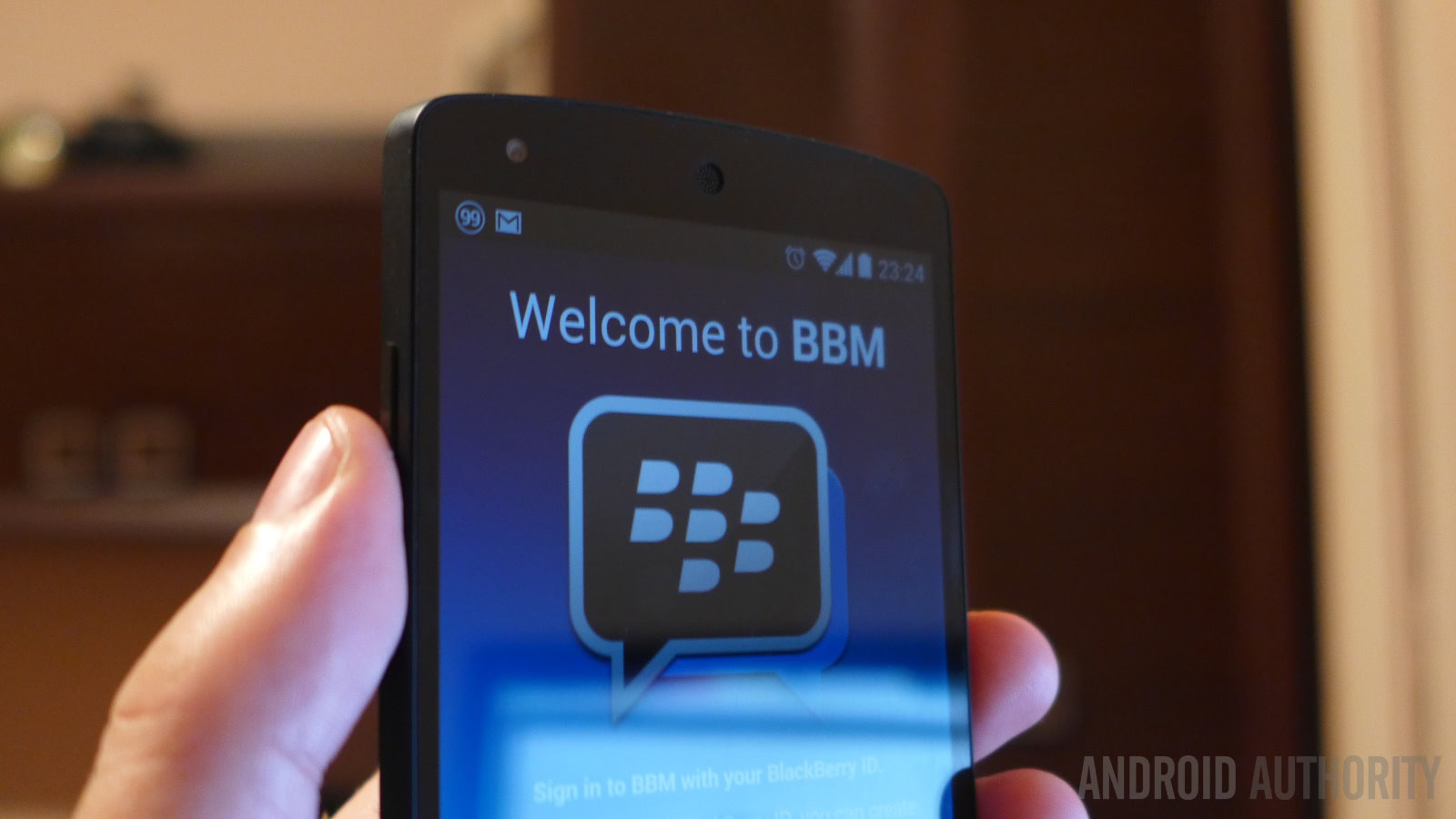Affiliate links on Android Authority may earn us a commission. Learn more.
Samsung + Blackberry: pros and cons
January 23, 2015

The persistent rumors about the possibility of Samsung buying BlackBerry have become a permanent fixture in the tech press over the last couple of years. Long before BlackBerry officially went up for sale in 2013, there was speculation about possible suitors. It’s only natural that talk turned to the largest, cash-rich, smartphone manufacturer on the scene in Samsung. But companies like Microsoft, Dell, and IBM were also mentioned.
As it turned out no-one was interested. There was to be no tech giant in white armor to ride to the rescue. In September 2013, BlackBerry announced losses around $1 billion and plans to cut its workforce by 40 percent. At this low point, shareholder Fairfax, with 10 percent of the company, announced plans to acquire the rest for $4.7 billion. The deal later fell through when Fairfax couldn’t raise the cash.
Is Samsung interested?
Back in the summer of 2012 Samsung denied it was interested in acquiring BlackBerry (still RIM at the time) or licensing its new BlackBerry 10 platform. What has changed since then?
If you believe Samsung’s mobile CEO, J.K. Shin, the company still isn’t interested. He was quoted by the Wall Street Journal on Monday.
“We want to work with BlackBerry and develop this partnership, not acquire the company.”
It’s worth mentioning that BlackBerry’s share price soars on the back of rumors like this, so even if Samsung was interested it wouldn’t want that to be public knowledge. Though you do have to wonder about the timing. Samsung could have swooped just over a year ago and acquired the company far more cheaply than the $7 to $8 billion price that’s being touted now.
To complicate things, Canada’s Financial Post reported this week that, despite the public rebuttals of both Samsung and BlackBerry, the Korean company is still very much interested in acquiring BB.

What’s in it for Samsung?
There are two credible reasons that Samsung might want to acquire or partner more closely with BlackBerry.
- Patents – BlackBerry has 44,000 patents covering things like wireless communications and encryption technologies, which could obviously be useful for Samsung.
- Enterprise – The foundations of the BlackBerry brand are built on enterprise customers. It’s a market we know that Samsung is interested in.
If the patent portfolio was enough motivation on its own, then you get the feeling Samsung would have looked to do the deal when the patent war was still at its height. It feels as though the litigation is slowing down, but there’s still little doubt that BlackBerry’s patents would be valuable to Samsung.
Samsung’s attempts to break into the enterprise with Knox have not been wildly successful. The perception of Android and Samsung devices in terms of security is not especially good. Samsung’s biggest competitor, Apple, has been making real inroads into the enterprise market and threatening to steal away BlackBerry’s share. Samsung could definitely use some of BlackBerry’s know-how and reputation in the enterprise, and it has a vested interest in halting Apple’s progress.
What about BlackBerry?
The prospect is much more straightforward for BlackBerry. Shareholders might be glad to take above market price right now if they don’t have faith in a comeback. Even if BlackBerry can turn things around, it would seem like a smart idea to align itself with the biggest smartphone player around. If software and services is truly the future of BlackBerry then a close partnership with Samsung could really help it back into the game.
In fact this is already happening. A partnership was announced in November. It brings BlackBerry’s BES12 enterprise mobility management software and Samsung’s Knox for Android together. There’s no way BlackBerry is going to be able to build back a significant share of the market with hardware, so it has to get its software onto more devices.
BlackBerry CEO, John Chen, said of the deal “We’re not about phones this time – we’re about software.”

Why buy the cow?
One other reason we’ve seen offered that Samsung might want BlackBerry is the software. It would be fair to say that software development is seen as a weak spot for Samsung and a strength for BlackBerry. If Samsung wanted help developing a new operating system or building on Tizen it could do worse than look to BlackBerry. There’s also the potential of QNX for embedded systems as the Internet of Things gathers pace.
Ultimately, the idea that Samsung would sink a large sum of cash into acquiring BlackBerry right now seems fanciful. Samsung can get all the potential benefits by working on some kind of partnership deal instead. With all the talk about declining profits for Samsung, the last thing it needs is to acquire a company that’s still losing money.
For BlackBerry’s part an acquisition also seems unlikely. It looks as though the company may be over the worst. The restructuring could bear fruit given time. Shareholders may be prepared to give Chen a fair crack of the whip. The company has enough going for it that we wouldn’t bet against a healthy software-driven revenue within a couple of years.
Mutually beneficial
What we can agree on is that a partnership would be mutually beneficial, and that’s no doubt why it’s already happening. Samsung gets security software and a touch of BlackBerry’s enterprise reputation. BlackBerry gets its software onto loads of Android devices and provides support for the largest smartphone manufacturer in the world. It’s an obvious win-win.
Could the partnership go further? BlackBerry services underpinning Samsung’s hardware. A merging of software that would see BlackBerry apps pre-installed on Samsung devices? A joint smartphone project for a Samsung-built BlackBerry phone? Maybe, maybe not. Let’s give it some time. The two rivals are still getting used to working together.

Turning things around
In the middle of 2008 RIM was worth $77 billion based on the share price. It continued to claim a dominant market share into 2010. A lethargic reaction to its changing fortunes was what delivered the killer blow, but the decline has been slow and it hasn’t proven fatal. The hardware heights are gone, but BlackBerry could recover in a new form.
Samsung is fresh onto the downward slide from its peak. Talk of the company being in trouble still feels overblown right now, but Samsung has a tough year ahead. There are plenty of reasons that a similarly sharp decline is unlikely for the South Korean conglomerate, not least diversification, but there’s a lesson for everyone in what happened to BlackBerry.
It would be interesting if a partnership between the two, once fierce rivals, is what turns both their fortunes around.